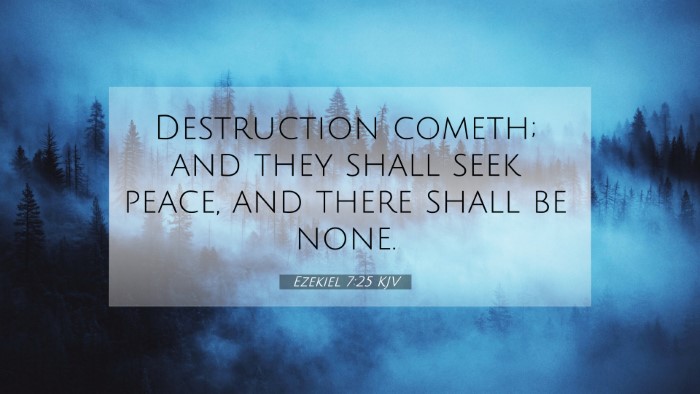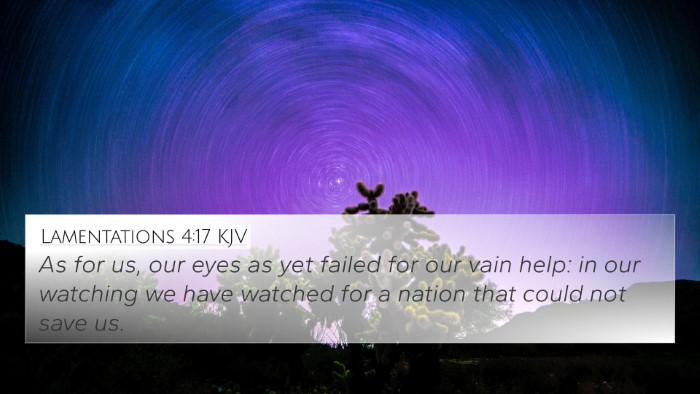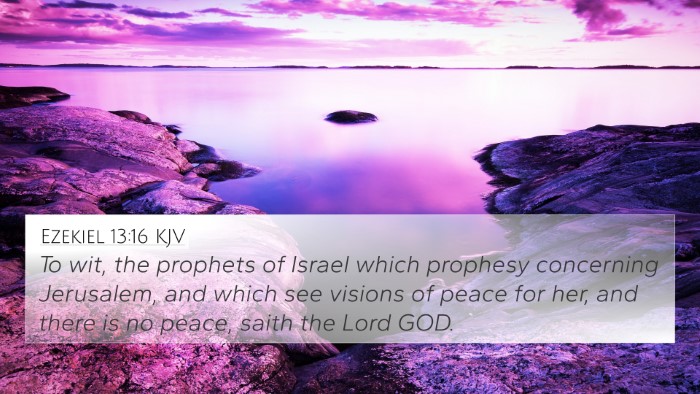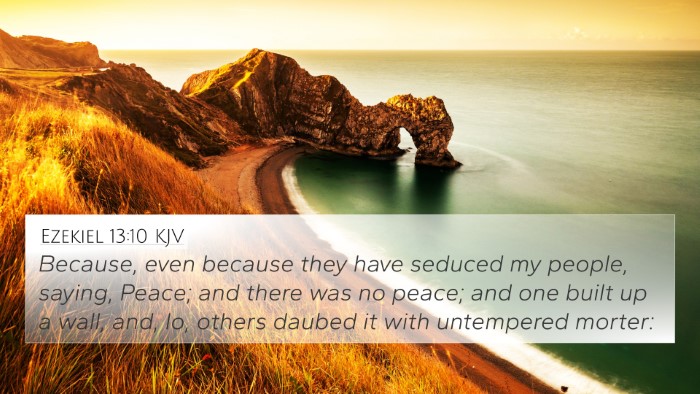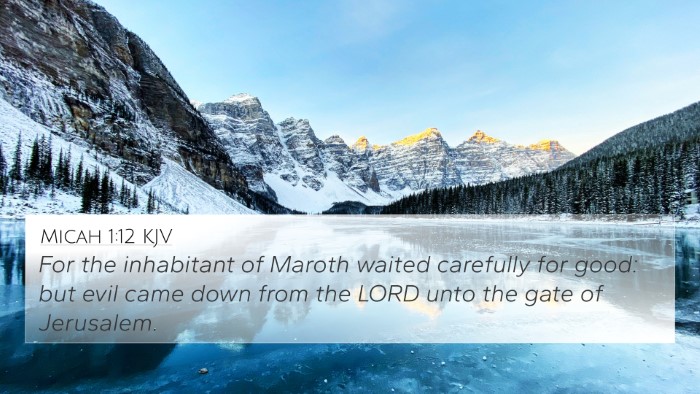Ezekiel 7:25 - Meaning and Insights
Ezekiel 7:25 states: "Destruction cometh; and they shall seek peace, and there shall be none." This verse serves as a poignant reflection on the dire circumstances facing Israel during Ezekiel's prophetic ministry. The message conveys a sense of inevitable calamity and the futility of seeking peace amidst impending judgment.
Summary of Insights
This verse highlights themes of destruction and the absence of peace, which are significant in the context of the prophetic warnings given by Ezekiel. Below, we summarize insights drawn from various public domain commentaries:
-
Matthew Henry notes that the destruction foretold is both imminent and unavoidable. He emphasizes the seriousness of national sins and their consequences, indicating that the people of Israel, despite their wish for peace, would find none due to their persistent rebellion against God.
-
Albert Barnes connects this verse to the broader theme of judgment, reflecting that the Israelites may seek peace during their trials, yet their wickedness has distanced them from God. Their pleas for safety in times of destruction will prove futile.
-
Adam Clarke suggests that the concept of seeking peace without repentance is futile. He interprets peace not merely as an absence of conflict but a state of being that can only be attained through alignment with God’s will, which the Israelites had forsaken.
Thematic Connections and Cross-References
Understanding Ezekiel 7:25 becomes richer through the examination of related scriptures and thematic connections within the Bible:
- Jeremiah 14:19 - Reflects upon the people's lament and the futility of seeking help from false gods during times of disaster.
- Lamentations 3:17-18 - Focuses on the loss of peace and hope because of the Lord’s judgments, directly tying into the sentiments expressed in Ezekiel.
- Isaiah 59:8 - Describes a generation that seeks peace in vain due to their waywardness from justice and righteousness.
- Hosea 4:6 - Highlights the destruction that comes from a lack of knowledge and turning away from God, leading to the inevitability of calamity.
- Micah 3:4 - Discusses how God will not answer the people in times of trouble due to their sinful behavior, which aligns with the absence of peace noted in Ezekiel.
- Matthew 24:6-7 - Jesus speaks about wars and rumors of wars, indicating that peace on earth will be disturbed in the last days, echoing the types of destruction faced in Ezekiel's message.
- Luke 17:26-30 - Compares the days of Noah to the coming judgment, indicating that people will be unprepared when the destruction comes, akin to the Israelites’ plight.
Understanding Through Cross-Referencing
Ezekiel 7:25 invites a deep dive into the theme of judgment and the quest for peace. The following keywords encapsulate various aspects of Biblical cross-referencing:
- Bible verse cross-references - Linking related scriptures enhances comprehension.
- Thematic Bible verse connections - Identifying common themes aids in understanding God’s message across books.
- Cross-referencing Biblical texts - Engaging with parallel passages deepens the context of individual verses.
- Identifying connections between Old and New Testament - Reveals the continuity of God’s message of judgment and mercy.
- Bible verses related to judgment - Focusing on the theme can provide insights on God’s character and the implications of sin.
Conclusion
In conclusion, Ezekiel 7:25 serves as a critical reminder of the consequences of sin and the absence of peace when one strays from God. By examining this verse alongside others, one may find a richer understanding of the scriptural narrative regarding divine judgment, the human condition, and the perennial search for peace in a world marred by sin.


